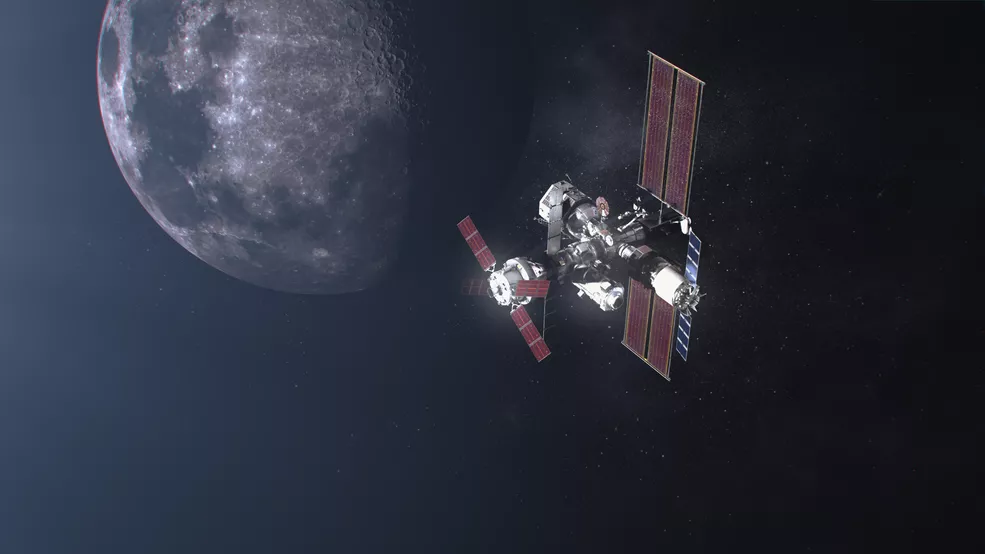On May 23 local time, US President Joe Biden and Japanese Prime Minister Fumio Kishida held talks in Tokyo. The two sides announced the progress made in the cooperative mission between human and robot on the moon, which will allow a Japanese astronaut to land on the moon portal, and looked forward to seeing the future Japanese astronaut land on the moon as part of NASA's "Artemis" program.

Schematic diagram of lunar portal
Biden said, "we have seen the Japanese lunar rover... Which marks that our space cooperation is taking off towards the moon and Mars. I am excited about the work we will do together on the lunar portal around the moon and look forward to the first Japanese astronaut joining our Artemis mission on the lunar surface."
NASA plans to develop the lunar portal in lunar orbit and assemble it in space using its space launch system rocket (SLS) or commercial rocket launch components. According to NASA, the moon portal is a key platform for developing technologies and capabilities to support future Mars exploration. It will have a variety of capabilities for continuous exploration and research in deep space, including providing docking ports for various visiting spacecraft, providing space for astronauts to live and work, and carrying out scientific research in the fields of solar physics, human health and life sciences.
In 2020, Japan became the original signatory of the Artemis agreement and agreed with NASA to provide life support capability and additional space for astronauts to live, work and study during the Artemis mission. The United States and Japan are making arrangements for Japanese astronauts to officially join the lunar portal project later this year.
As part of the ongoing cooperation on space and earth science missions, Biden and Ishida reiterated that the United States and Japan will continue to cooperate in earth science data sharing to enhance the scientific understanding of Earth climate change.
In addition, Biden confirmed that the United States plans to provide samples from the asteroid Bennu to Japan in 2023. Earlier, Japan had provided the United States with asteroid samples collected by the Japan Aerospace Exploration Agency (JAXA) Falcon 2 asteroid sample return mission.